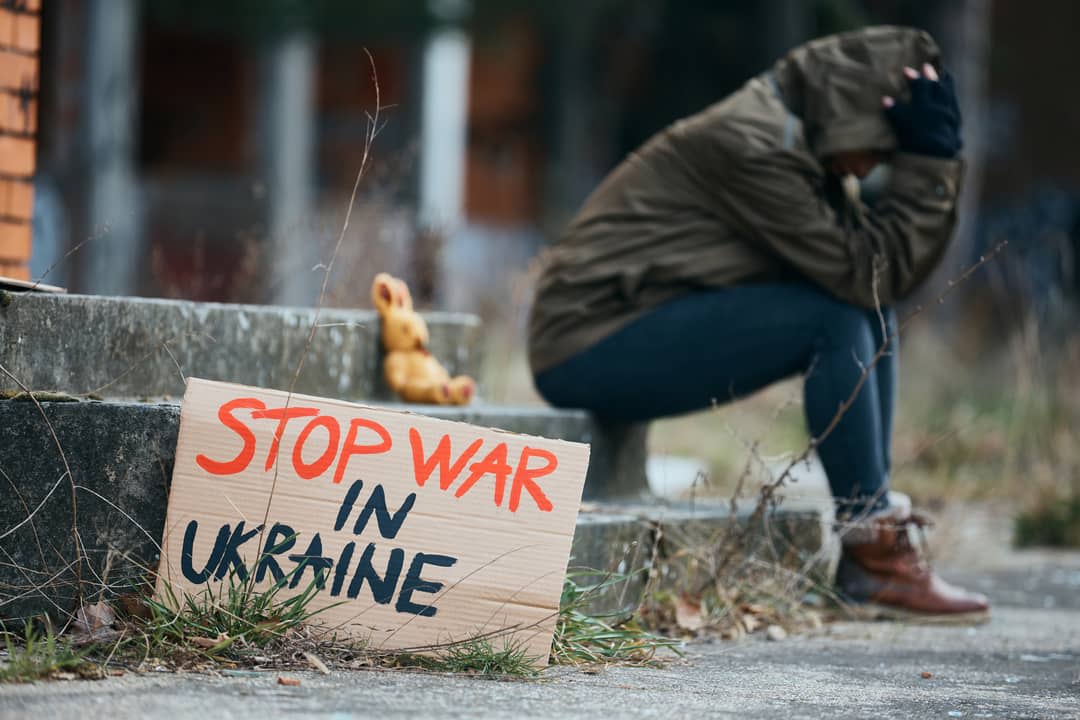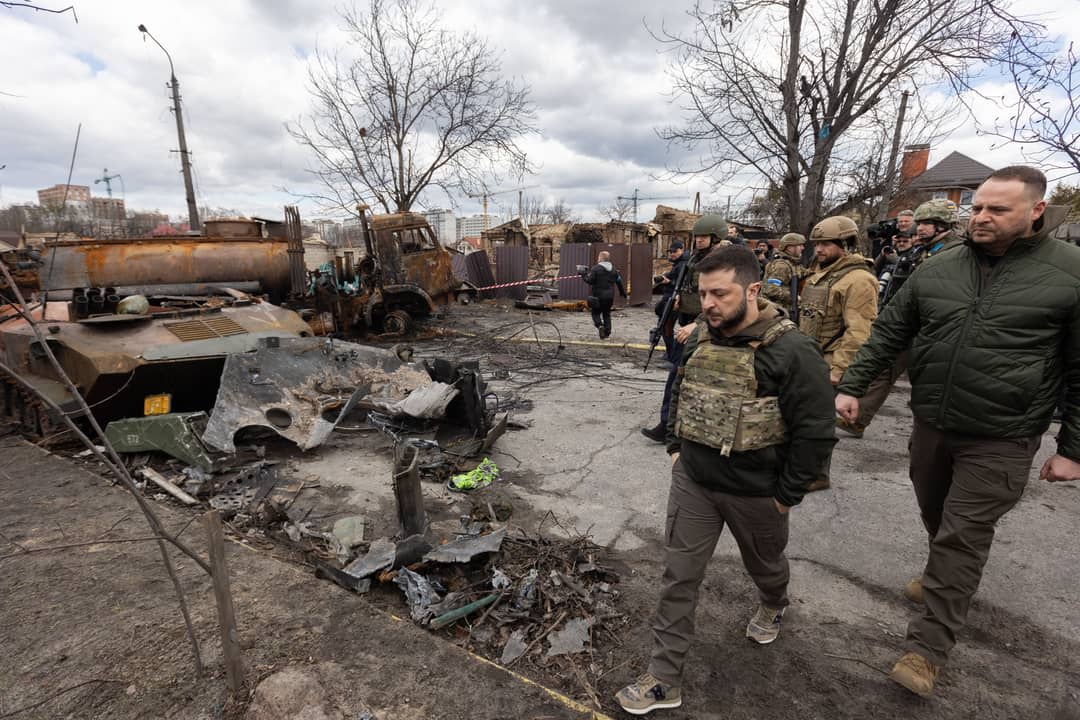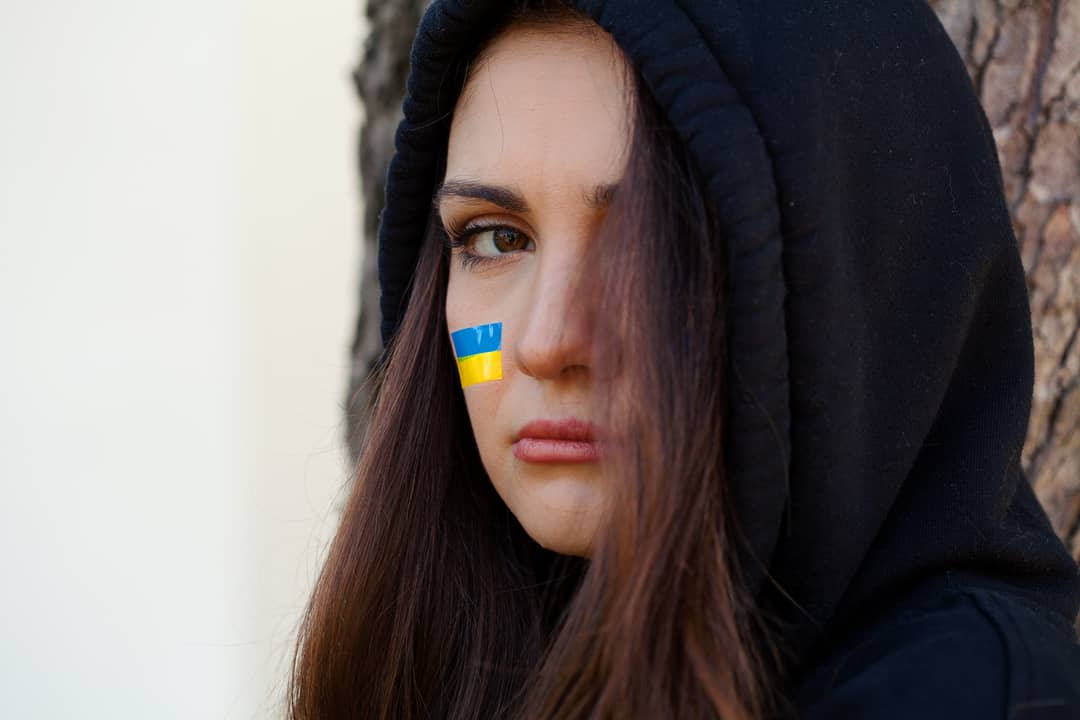
Since Russia began its war against Ukraine more than 100 days ago, hundreds of instances and reports have emerged of sexual violence being used against civilians in areas under Russian control.
Stories of gang rape, sexual assaults at gunpoint, and rapes committed in front of children were among some of the accounts emerging from Kyiv last month as Russian troops withdrew from the capital.
We know from research on wartime sexual violence that these crimes are common; however, they are unlikely to be reported or documented. Particularly in Ukraine, where the Russian occupation makes reporting difficult, the extent of sexual violence is likely to be worse than we know.
Dr Marta Havryshko gave the inaugural Monash Scholars at Risk Speaker Series public lecture on the role of sexual violence in the war on Ukraine on 26 May. Dr Havryshko is an associate researcher in the Department of Contemporary History at the I. Krypiakevych Institute of Ukrainian Studies of Ukrainian National Academy of Sciences (Lviv).
In March, she evacuated from Ukraine with her nine-year-old son to Hamburg, where she received an emergency fellowship at the Hamburg Institute for Social Research, and is now a URIS Fellow at Basel University.
In her seminar, Dr Havryshko theorised that the frequency, nature, and effects of sexual violence by Russian soldiers suggest that rape is being used by the Russian army as a “weapon of war” against Ukrainians.
This means rape and other forms of sexual violence are being used as a tool to devastate and shame Ukrainian communities, encouraging them to surrender to Russian forces.

She described how rape by soldiers (that is, in public spaces and in front of families and communities) has been used as a strategy to intimidate and demoralise Ukrainians.
Russian forces seek to humiliate and punish Ukrainian men in particular by demonstrating their failure to protect women and their country, and thus fulfil their stereotypical “masculine” roles.
Dr Havryshko also spoke of rape and other sexual harassment such as forced nudity and stripping becoming a legitimate outlet for Russian soldiers, as they’re able to commit such acts without punishment from their commanders.
This has been evident during the Bucha massacres, where Russian commanders approved the use of sexual slavery.

Furthermore, Dr Havryshko discussed the language being used by Russian soldiers to justify sexual violence by framing women as fascist and vile, and part of the “other” or the “enemy”.
This is consistent with the Russian propaganda that claims its military is fighting fascism, “denazifying” Ukraine and liberating its citizens from the “fascist junta”.
Dr Havryshko also discussed her unique insights into first-hand stories of Ukrainians involved in and affected by the conflict, including reports of Russian soldiers and commanders making rape jokes before invasions, and referring to Ukraine as “female” and Russia as “male”.
Feminist research has shown language that genders national communities with particular constructions of feminine and masculine identity is a way to not only legitimise the rape of women in war, but also works to disempower and emasculate men.
Uncovering such insights is useful in understanding the connection between the personal, and often seen as “private”, experiences of women within the high-level political dynamics of war and conflict.

Dr Havryshko’s Monash SAR lecture, and her effort along with others to disseminate reports of sexual violence in the Russian war on Ukraine, is critical for understanding sexual violence in the context of war and conflict from the perspective of those who are impacted.
Her research increases awareness of sexual violence as a strategy or weapon of war, and her background as a historian brings important context to understanding why sexual violence is being used in Ukraine.
Sexual violence during war is no longer seen as a “natural” consequence of men’s biological sexual urges in a situation of extreme violence where reasons and social constraints were suspended.
Feminist research has long contested such stereotypical views, and highlighted the structure and socio-cultural factors that enable sexual violence to be used as part of a war strategy.
Understanding the broader problem that underpins gender inequality and sexual violence could generate policy initiatives to address the root cause of sexual violence, and prevent it in the conflict and post-conflict context.
As noted by Dr Havryshko in her lecture, increased awareness of all kinds of sexual violence in conflict can help remove stigma from reporting such crimes.
In Ukraine we can already see that the increased awareness of rape and sexual violence in the conflict has led to a concerted effort by prosecutors to document and investigate perpetrators.
Monash Gender, Peace and Security (GPS) Centre has been at the forefront of feminist research, and focuses on issues of gender, peace, and security. The centre’s vision is to build globally-recognised, gender-inclusive research evidence to deliver peace and security. The Monash Scholars at Risk Speaker Series is one way that Monash University, the Faculty of Arts and the GPS Centre can highlight important research to promote public understanding about the gendered nature of insecurity, and the search for peace.





